
Breanne Peyton-Thomas, PharmD, BCOP, discusses her work as a pharmacist at Ochsner Health on the CAR T-cell therapy team.

Breanne Peyton-Thomas, PharmD, BCOP, discusses her work as a pharmacist at Ochsner Health on the CAR T-cell therapy team.

Lalan Wilfong, MD, discusses the road to value-based care and payment reform in cancer care.
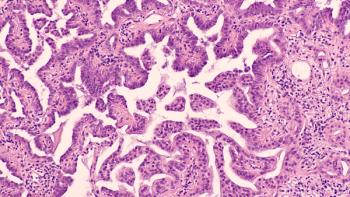
Datopotamab deruxtecan was effective in patients with TROP2-QCS biomarker-positive tumors for non–small cell lung cancer
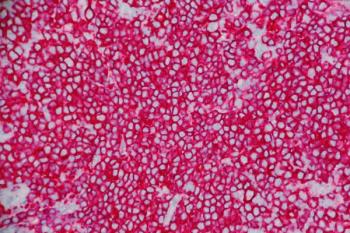
Presenter Krish Patel, MD, discusses the use of epcoritamab (Epkinly; AbbVie) and glofitamab (Columvi; Genentech) in aggressive B-cell lymphomas as monotherapies and in combination regimens.

Lazertinib with amivantamab was found to be similar in efficacy to osimertinib in the MARIPOSA study.

Experts debate over the most effective treatment pathway for Richter transformation, highlighting the risks and benefits of different cellular therapies.

The study authors suggest that annual screening for women aged 40 and older may be beneficial, but warn of the increased risk of false positive results.

Alessandra Ferrajoli, MD, discusses the importance of renal function for BCL2 inhibitors to avoid tumor lysis syndrome and cardiovascular history for BTK inhibitors to mitigate arrhythmia risks.

The evolving treatment landscape for multiple myeloma includes debates on the timing and effectiveness of CAR T-cell therapy and quadruple immunotherapy regimens.

Reid Merryman, MD, discusses the potential for minimal residual disease (MRD) to inform treatment decisions, identify lymphoma subgroups, and infer gene expression.
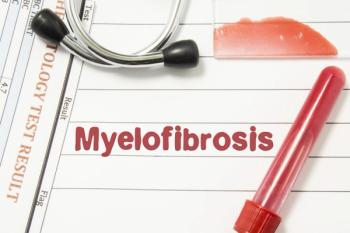
Disease-related factors include several prognostic scoring systems, such as DIPSS, whereas patient-related factors involve age, comorbidities, spleen size, and anemia.

Surprisingly, those with overweight BMI at diagnosis did not have a poor prognosis.

Stefan Barta, MD, MS, MRCPCUK, discusses the potential role of biomarkers in predicting treatment outcomes, the emerging use of CAR T-cell therapy, and the benefits and challenges of combination therapies in managing T-cell lymphoma.

Previously, the FDA granted fast track designation to ABD-147 (Abdera Therapeutics Inc) for extensive stage small cell lung cancer.

Sonali Smith, MD, discusses T-cell–directed therapies for indolent B-cell lymphoma, focusing on their efficacy, FDA-approved treatments, and treatment challenges, such as managing cytokine release syndrome.

Rather than “trial-and-erroring” transplants for patients, experts should instead select transplants that are precise, personalized, and predictable.

OBX-115 could offer further treatment options for individuals with advanced or metastatic melanoma by enhancing persistence, antitumor activity, and clinical safety of TIL cell therapy.

The authors stress that health care providers should explain false positive results to their patients, reassure them that results may be negative, and stress the significance of continued screenings.
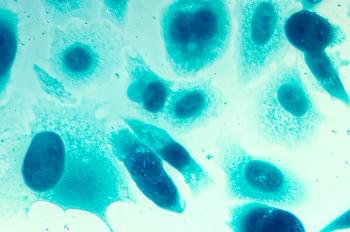
These companion diagnostics are poised to provide simpler and detailed insights into a patient’s genomic alternations, which could improve outcomes for patients with prostate cancer.

Jose Tinajero, PharmD, BCOP, discusses the results of a retrospective study evaluating patients with B-cell acute lymphoblastic leukemia.
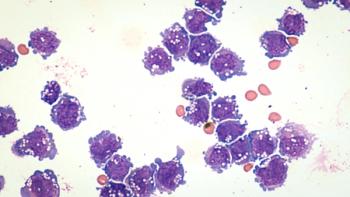
Patients with DLBCL on Medicaid had worse survival outcomes than those on commercial insurance, but there were no statistically significant differences in survival between races.

Mary McGann, PharmD, BCOP, offers insights into CAR T-cell therapy and the crucial role of pharmacists in mitigating resistance.

The risk of late-stage diagnosis was higher for Asian, Black, and Native Hawaiian or Other Pacific Islander adolescent and young adult patients with cancer.

Expert shares reasons why many women are behind on their annual breast cancer screenings, along with the latest cutting edge treatments in the breast cancer space.

Pharmacists support treatment adherence as well as monitor adverse effects, drug-drug interactions, and quality of life.

Mirdametinib is an oral, allosteric small molecule MEK inhibitor to treat pediatric patients with neurofibromatosis type 1-associated plexiform neurofibromas (NF1-PN).

In survivors of lymphoma with fragmented transition of care, preparedness and activation for the next phase of their survivorship was lacking.

Pharmacists play a crucial role in supporting patients with HR+/HER2– breast cancer.

Accurate, effective screening is crucial for connecting patients with needed financial resources and support.

With diagnostic tools, oncology pharmacists and other health care providers can help to identify treatments that have the best probability of working for a specific patient.